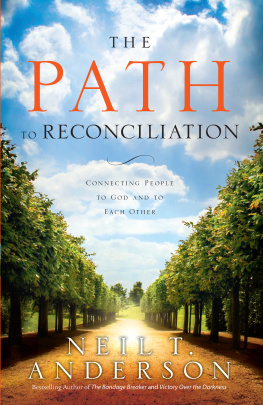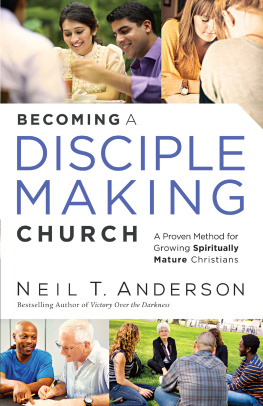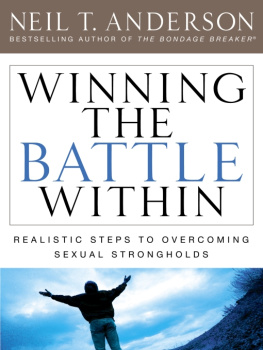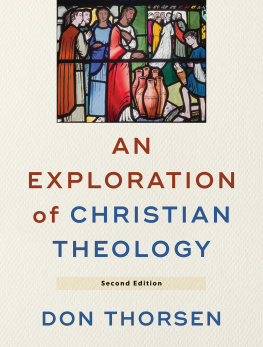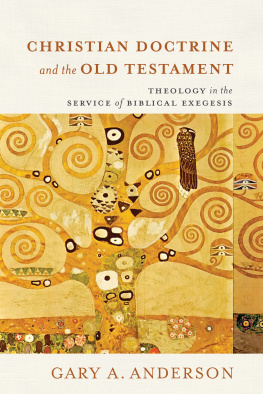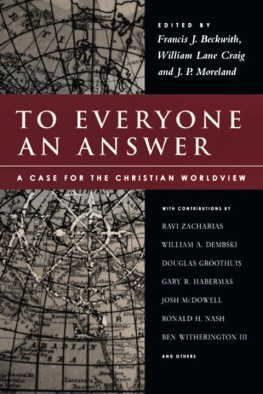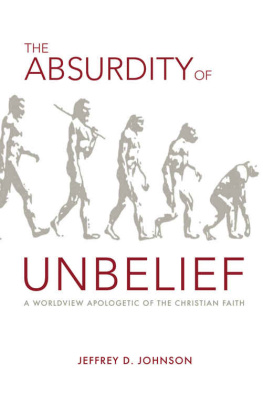Praise for
T HE D AILY D ISCIPLER
What does systematic theology have to do with our daily lives? Most believers, if they are honest, would say, Not much. In The Daily Discipler, Neil Anderson does a superb job of showing how theology can inform lifes most difficult issues. From overcoming sin bondages to dealing with anxiety and depression, Neil Anderson connects the miracle work of God in Christ Jesus to our daily lives. This book will bless you in making theology a transformative experience instead of an intellectual exercise.
Fernando Garzon, Psy.D.
ASSOCIATE PROFESSOR, REGENT UNIVERSITY,
SCHOOL OF PSYCHOLOGY AND COUNSELING
Through his life and writings, Neil Anderson has been a genuine point man in Christs army, leading believers toward the God-given objective of presenting every man free and fully mature in Christ. In The Daily Discipler, Neil has encapsulated his lifes work and provided a tool that will assist many in moving from the skin-deep Christian maturity that is so typical of our day to the genuinely transformed life that consistently exemplifies and is worthy of the Savior whose name we wear.
Michael D. Jacobson, D.O.
AUTHOR, THE WORD ON HEALTH
DIRECTOR, PROVIDENT MEDICAL INSTITUTE
ASSISTANT PASTOR, BETHEL BAPTIST TEMPLE

2005 Neil T. Anderson
Published by Bethany House Publishers
11400 Hampshire Avenue South
Bloomington, Minnesota 55438
www.bethanyhouse.com
Bethany House Publishers is a division of
Baker Publishing Group, Grand Rapids, Michigan.
www.bakerpublishinggroup.com
Bethany House Publishers edition published 2014
ISBN 978-1-4412-6555-5
Previously published by Regal Books
Ebook edition originally created 2014
All rights reserved. No part of this publication may be reproduced, stored in a retrieval system, or transmitted in any form or by any meansfor example, electronic, photocopy, recordingwithout the prior written permission of the publisher. The only exception is brief quotations in printed reviews.
Library of Congress Cataloging-in-Publication Data is on file at the Library of Congress, Washington, DC.
All Scripture quotations, unless otherwise indicated, are taken from the Holy Bible, New International Version. Copyright 1973, 1978, 1984 by International Bible Society. Used by permission of Zondervan Publishing House. All rights reserved.
Other versions used are:
KJVKing James Version. Authorized King James Version.
NASBScripture taken from the New American Standard Bible, 1960, 1962, 1963, 1968, 1971, 1972, 1973, 1975, 1977 by The Lockman Foundation. Used by permission.
C ONTENTS
Research Results of Discipleship Counseling
I NTRODUCTION
Most of us get up every morning, only to face a very busy day. We want to present ourselves appropriately to others, so we spend a measure of time showering and grooming. Those who are more physically disciplined will find time for exercise. Bodily discipline is important for our health and for successful living in this world. Once weve finished our morning routine, we have a quick bite to eat; and then its off to work, school or play.
Where and how we spend our time reflects our values and reveals what we have chosen to believe. It is easy to overlook the need for spiritual disciplines because we dont always see immediate benefits. Temporal gratification often takes precedence over long-term commitments. Humanly we ask, Whats in it for me? That seems so unrighteous, but in reality there is no sure commitment without any sure reward. The apostle Paul addresses this issue when he tells us, Train yourself to be godly. For physical training is of some value, but godliness has value for all things, holding promise for both the present life and the life to come (1 Tim. 4:7-8). Paul is saying that spiritual disciplines are more profitable than physical disciplines and that our lives will be more fruitful if we spend time with the Lord and seek to be transformed by the renewing of our minds to the truth of His Word.
Without capitulating to the tyranny of the urgent, I believe there is a need for a practical, systematic theology book that can be digested in daily nuggets. What you are holding in your hand is the result of 25 years of formal education, 60 plus years of living and 35 years of Christian service. The contents first appeared in the Freedom in Christ Bible, a one-year study bible published by Zondervan. They have graciously given permission for this volume to be published as a discipleship tool for busy Christians who want to be all that God created them to be.
In working through The Daily Discipler, you will discover who you are in Christ, what it means to be a child of God and how to live a responsible and liberated life in Him. This yearlong study is divided into four quarters. The first three-quarters relate to Gods will for your life, i.e., your sanctification (see 1 Thess. 4:3). The basis for your sanctification is your new life in Christ. As a Christian, you are in the process of conforming to the image of God, and the necessary foundation is your identity and position in Christ. The apostle Paul explains the order of growth in Colossians 2:6-10:
So then, just as you received Christ Jesus as Lord, continue to live in Him, rooted and built up in Him, strengthened in the faith as you were taught, and overflowing with thankfulness. See to it that no one takes you captive through hollow and deceptive philosophy, which depends on human tradition and the basic principles of this world rather than on Christ. For in Christ all the fullness of the Deity lives in bodily form, and you have been given fullness in Christ, who is the head over every power and authority (emphasis added).
Every new believer must first be rooted in Him in order to be built up in Him. Being spiritually alive in Christ means that your soul is in union with God. Just as you encounter challenges as you grow physically, there are hurdles to overcome and lessons to learn in order to grow spiritually. In the first three-quarters you will discover what it means to be firmly rooted in Christ, to grow in Christ and to live free in Christ. The following diagram shows Levels of Conflict and Levels of Growth. The first diagram illustrates what needs to be overcome at various stages of growth spiritually, rationally, emotionally, volitionally, and relationally. The second diagram illustrates the maturity that should be evident at each level.
Levels of Conflict
| Level One | Level Two | Level Three |
| Spiritual | Rooted in Christ Lack of salvation or assurance (Eph. 2:1-3) | Built up in Christ Living according to the flesh (Gal. 5:19-21) | Living in Christ Insensitive to the Spirits leading (Heb. 5:11-14) |
| Rational | Pride and ignorance (1 Cor. 8:1) | Wrong belief or philosophy (Col. 2:8) | Lack of knowledge (Hos. 4:6) |
| Emotional | Fearful, guilty and shameful (Matt. 10:26-33; Rom. 3:23) | Angry, anxious and depressed (Eph. 4:31; 1 Pet. 5:7; 2 Cor. 4:1-18) | Discouraged and sorrowful (Gal. 6:9) |
| Volitional | Rebellious (1 Tim. 1:9) | Lack of self-control (1 Cor. 3:1-3) | Undisciplined (2 Thess. 3:7,11) |
| Relational | Rejected and unloved (1 Pet. 2:4) | Bitter and unforgiving (Col. 3:13) | |
Next page

